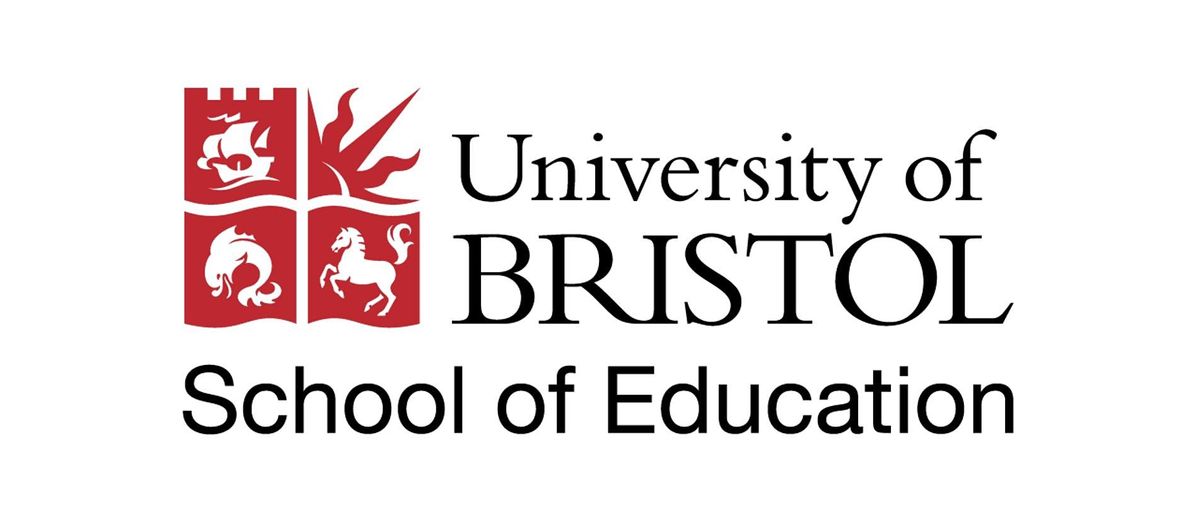
About this Event
This event is part of the School of Education's . These seminars are free and open to the public.
Hosted by Dr. Frances Giampapa, Language, Literacies and Education Network (LLEN)
Speakers:
- Bronwyn T. Williams, Professor of English, University of Louisville. United States
- Aubrie Cox Warner, University of Louisville
- Olalekan Adepoju, Rhetoric and Composition, University of Louisville
- Artemio Cortez Ochoa, Faculty of Education, University of Cambridge
- Carolina Valladares Celis, School of Education, University of Bristol
- Gonzalo Hidalgo Bazan, School of Education, University of Bristol
- Victoria Bowen, School of Education, University of Bristol
- Harriet Hand, School of Education, University of Bristol
- Jennifer Rowsell, School of Education, University of Bristol
Please scroll to the next section for the full programme.Summary
The ongoing challenges to education created by the COVID-19 pandemic have not only forced students and their teachers to adapt to writing and learning in new physical and emotional circumstances, but the conditions of the pandemic have been equally challenging for researchers.
Research, in the tradition before the pandemic, often emphasized and privileged being present in the locations learning happened, whether it be a classroom, workplace, home, or coffee shop. With the pandemic, however, researchers have had to adapt to online interactions, new protocols for in-person contact, and respond to and mediate the affective experiences of the students and teachers with whom they work, as well as their own. It is important to gain a greater understanding of the effects of the pandemic on the nature of research in both in terms of methods, but just as important in terms of the identity of the researcher. Although the discussions of identity in conducting research often focus on the “position of the researcher” and the power relations implied by that term, the experiences we have as researchers also create emotional dispositions and autobiographical memories that have ongoing effects on how we approach our research, and understand ourselves as researchers.
We hope to explore the ways in which changes in research practices, the constant and evolving uses of digital media, and affective responses to the pandemic, are influencing research practices for both researchers and research participants. Conditions of the pandemic have changed how we conceive of the locations of research and the position of the researcher in those locations. Researchers are having to rethink questions of research ethics and representation, as well as the affective experiences of both researcher and research participant. These are all questions that scholars have been having to rethink and reconfigure, time and again, in the past two years, and will have implications for research and writing in the years to come.
We ask researchers to reflect on the following questions:
- What have been the affective and embodied experiences of doing research during the pandemic? How might these affective and embodied experiences and the memories you are building form your research shaping how you think of yourself as a researcher now and in the future?
- Have changes in methods, technologies, and locations of research offered new approaches or insights into the ways we construct our identities as researchers
- How have the institutional structures of the university – ethics boards, funding, mentoring – or of your research site shaped your experiences and conceptions of research during the pandemic?
Speakers from different stages of their research will respond to these questions and we will discuss and reflect on our journeys as researchers in/through/and around the pandemic.
Programme1:30 Welcome to seminar: Bronwyn Williams and Frances Giampapa
1:45 Aubrie Cox Warner, University of Louisville
Unexpected Benefits in Pandemic-Influenced Methodologies
When I first imagined my thesis project, I was deeply invested in conducting interviews ‘on location’ of my research site. Since my research is an intersection of rhetorics of place and rhetorics of nostalgia, I felt that this approach would only strengthen my research. The COVID-19 pandemic, to my disappointment, forced me to pivot to primarily Zoom interviews. Boyle and Rice note in the introduction of Inventing Place: Writing Lone Star Rhetorics (2018), ‘Proximity to any particular object does not offer a closer, purer, or less biased view into the truth of that object’ (p. 2); however, it was not until I had completed data collection and began revisiting the content that I fully accepted and embraced Boyle and Rice’s claim. I had previously written that I felt I was losing ‘some nuances through remote interviewing’ (English, Newman, Warner, & Williams, 2021, p. 12), but in early analysis, more than the ‘core values’ have emerged. Revisiting and drawing upon scholars such as Vasudevan (2014), Pahl, (2014), and Leander and Boldt (2013), this presentation will reflect on how my pandemic-influenced methods and literacy practices not only shifted my understanding of ‘body in place,’ but had unanticipated benefits including participant harm reduction (beyond pandemic safety protocols) and a better alignment of methodological and theoretical frameworks, which will influence my engagement with participants in the future.
2:00 Olalekan Adepoju, Rhetoric and Composition, University of Louisville
Making it work: Navigating agency while exploring new research practices during pandemic Over the past two years, the COVID-19 pandemic has shifted the way we conceive of and approach research practices. Not only have researchers had to adapt their research practices and methods to new realities of online interaction, but many have also had no other choice than to share their research findings only through online avenues. As a budding researcher, these new realities for conducting and sharing my research projects has necessitated a disposition toward reaching beyond my familiar research methodologies in efforts to navigate my agency as a researcher. Moreover, as a new entrant into my field of research, the pandemic compounded my initial anxiety about effective means to negotiate this agency, both as a graduate student and researcher. As Smith et al. (2018) note, agency involves not only the skills necessary to undertake a task, but also the perception that one is able to undertake the task at hand. To make my research endeavors work regardless of the constraints of the pandemic, I have had to explore research practices that are not typical to how I thought of my researcher identity. In essence, I have had to develop specific capacity to enhance my ability to undertake my research tasks, especially during this period of COVID-19 pandemic. In this presentation, therefore, I will discuss how these affective experiences have become crucial to how I navigate agency and understand myself as a researcher. Specifically, I will pay attention to strategies I employed for facilitating my agency and work toward dealing with new research practices and methodologies.
2:15 Artemio Cortez Ochoa, Faculty of Education, University of Cambridge
Carolina Valladares Celis, School of Education, University of Bristol
Educational research in uncertain times: investigating student teachers remotely
During the early months of the school closures due to the pandemic, there was a generalised concern regarding student teachers’ engagement with learning at a distance, and whether and how higher education institutions were supporting them. In this presentation, we will talk about an investigation with student teachers and heads of schools in Mexico, conducted remotely. We will reflect on the challenges faced to negotiate access with gatekeepers and consent from participants in a context where physical presence is fundamental for research. In addition, we will address the limitations of research in uncertain times, including the quality of quantitative and qualitative data collected.
2:30 Discussion and Questions
3:00 Break
3:30 Gonzalo Hidalgo Bazan, School of Education, University of Bristol
Online research with families in a shifting scenario
My presentation gives a personal account of the experience of designing and conducting qualitative research taking into account a changing political landscape, but also suddenly shifting to online methods due to the Covid-19 pandemic. In addition to the pandemic that had a large number of Chilean schools closed for almost two years, the people's uprising started in October 2019 has opened up discussions and challenged the role of different institutions in Chile. I will share the possibilities that online interviews provided to research parents' relationship with their children's education, ethical considerations, and the challenges of conducting my research from a distance in a shifting scenario.
3:45 Victoria Bowen. School of Education, University of Bristol
The challenges and opportunities presented during my critical policy analysis of the enactment of national COVID-19 policy and guidance in two English secondary schools
COVID-19 has had devastating effects both on health and economic grounds, but it has also presented researchers, like me, with a unique and novel policy context to explore. The pandemic has placed multiple, diverse, and often contradictory policy demands on secondary schools and, thus far, there is a paucity of studies that seek to understand how secondary schools have creatively forged new practices from national COVID-19 policy and guidance texts. To this end, my research leverages a case study of two secondary schools in South West England following 12 months of engagement. However, the research has not been without its challenges. Would things simply go back to normal? Would headteachers want me in their schools during such an unprecedented period? Can robust data be collected from online interviews? This presentation briefly outlines my personal journey as a PhD researcher; the challenges and opportunities it has presented; as well as unveiling the study’s initial findings.
4:00 Harriet Hand, School of Education, University of Bristol
Jennifer Rowsell, School of Education, University of Bristol
Alone-together: what lockdown made possible for an intergenerational project across two cities
Our presentation will reflect on the experiences of a four-month intergenerational study with adult undergraduate students in Bristol, UK, and year four students in Delft, the Netherlands, during lockdown restrictions in both countries. To conduct the research, we staged synchronous and asynchronous events using multimodal and multisensory mapping as a method for exploring the enriched layers of analogue and digital spaces of self during lockdown. The project was guided by the concept of research-creation (Manning 2015; Truman et al. 2020) as a way of engaging with the dynamic complexities of learning lives during the pandemic and activating new understandings of learning as a process of becoming. This reflection will take a positive stance to explore what was made possible by the changes brought about by the pandemic: how our experience offered new insights into our own shifting identities as educators-artists-researchers; how lockdown provoked an increasingly emergent and improvisational engagement with methodology; and how online tools opened up new opportunities for productive engagement with data.
4:15-5:00 Discussion/Questions and closing remarks
Event Venue & Nearby Stays
(Please find details of how to attend at the end of your order confirmation email) University of Bristol, School of Education, 35 Berkeley Square, Bristol, United Kingdom
GBP 0.00
